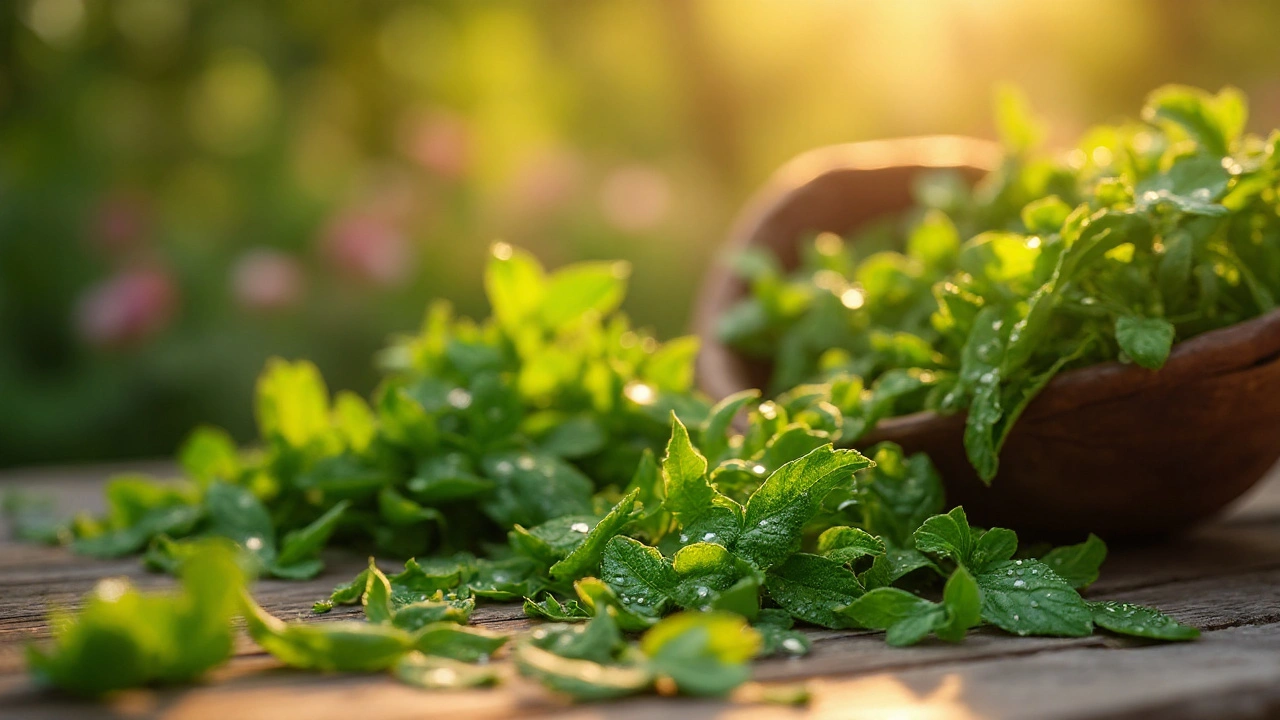Anti-Inflammatory Herbs You Can Trust
If you’re tired of popping pills for sore joints or upset stomach, you’ve probably heard that herbs can help calm inflammation. The truth is, many plants contain compounds that directly ease swelling, reduce pain, and support the body’s healing processes. Below we break down the top herbs, why they work, and simple ways to use them.
Why Choose Herbs Over Conventional Drugs?
Most over‑the‑counter anti‑inflammatories block the same pathways that herbs target, but they often come with stomach upset, kidney strain, or heart risks when used long term. Herbs tend to act more gently, providing antioxidant support alongside the anti‑inflammatory effect. For example, turmeric’s curcumin blocks the same inflammatory molecule (NF‑kB) that many NSAIDs do, yet it also boosts the body’s natural antioxidant defenses.
Top Anti‑Inflammatory Herbs and How to Use Them
Turmeric (Curcuma longa) – The golden spice is famous for its curcumin content. Pair a teaspoon of powdered turmeric with a pinch of black pepper and a splash of fat (olive oil or coconut milk) to improve absorption. You can stir it into soups, smoothies, or take a supplement.
Ginger (Zingiber officinale) – Fresh ginger root works fast for joint pain and digestive inflammation. Slice a few pieces and steep in hot water for a soothing tea, or blend it into a stir‑fry.
Boswellia (Boswellia serrata) – Also called Indian frankincense, boswellia resin is available as capsules or powdered extract. It’s especially good for arthritis. Follow the label dosage, usually 300‑500 mg three times a day.
Cinnamon (Cinnamomum verum) – Besides its sweet flavor, cinnamon contains cinnamaldehyde, which reduces inflammatory markers. Sprinkle it on oatmeal, yogurt, or add a stick to your coffee.
Green tea (Camellia sinensis) – The catechins in green tea have strong anti‑inflammatory properties. Drinking 2‑3 cups a day can lower overall inflammation and support heart health.
When you start any new herb, keep the dosage low for a week to see how you react. Combine herbs that complement each other—turmeric with black pepper, ginger with honey, or green tea with lemon—for better taste and absorption.
Remember, herbs aren’t a magic cure. Pair them with a balanced diet, regular movement, and proper sleep for the best results. If you have a chronic condition or take prescription meds, check with a healthcare professional before adding high‑dose herbs.
Ready to give your body a natural boost? Pick one herb from the list, try it for a week, and notice any changes in pain or stiffness. Then gradually add another. Over time you’ll build a simple, food‑based anti‑inflammatory toolkit that’s easy to keep up with.
Feel free to explore our other articles for deeper dives into specific herbs or related health topics. Whether you’re looking for supplement guides, dosage tips, or safe online pharmacy options, we’ve got you covered.
Start today, and let nature do a bit of the heavy lifting when it comes to inflammation.

